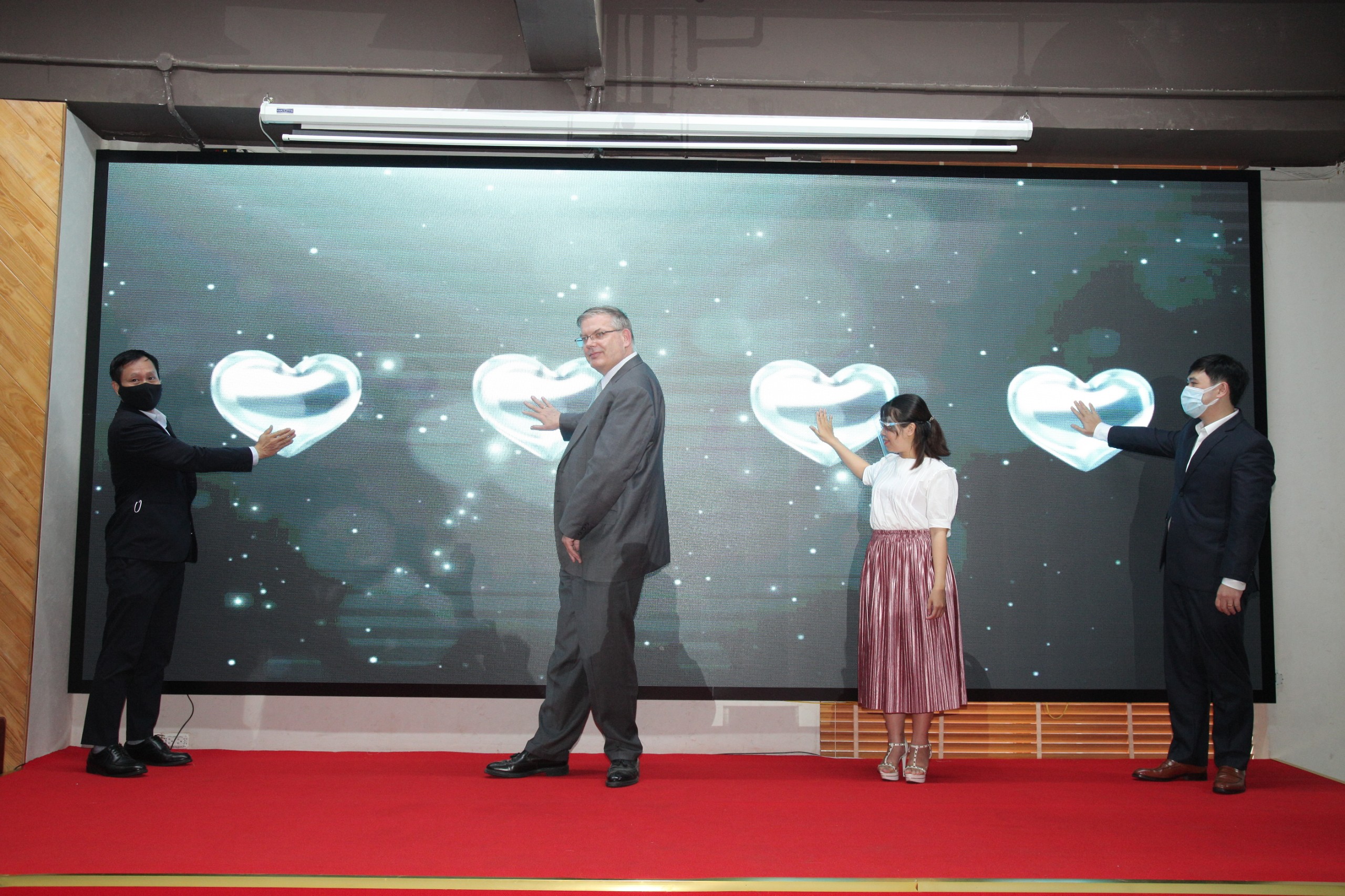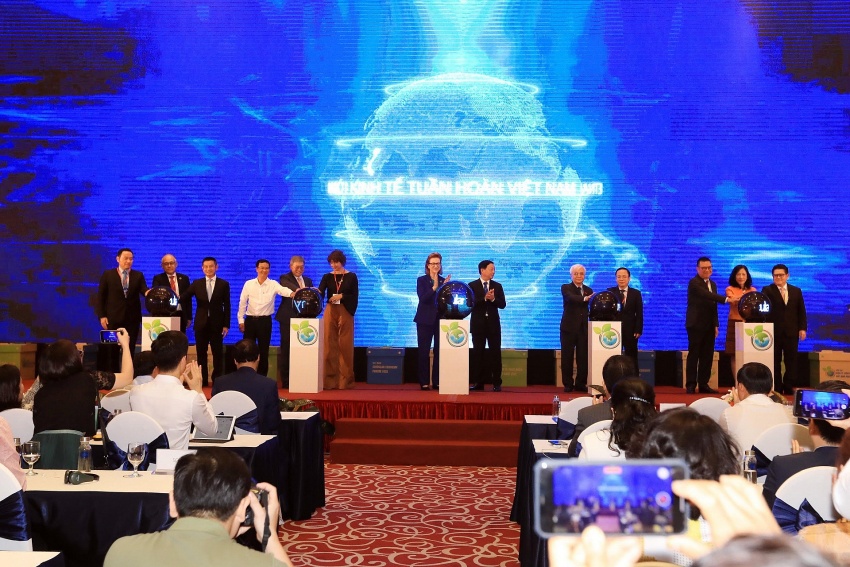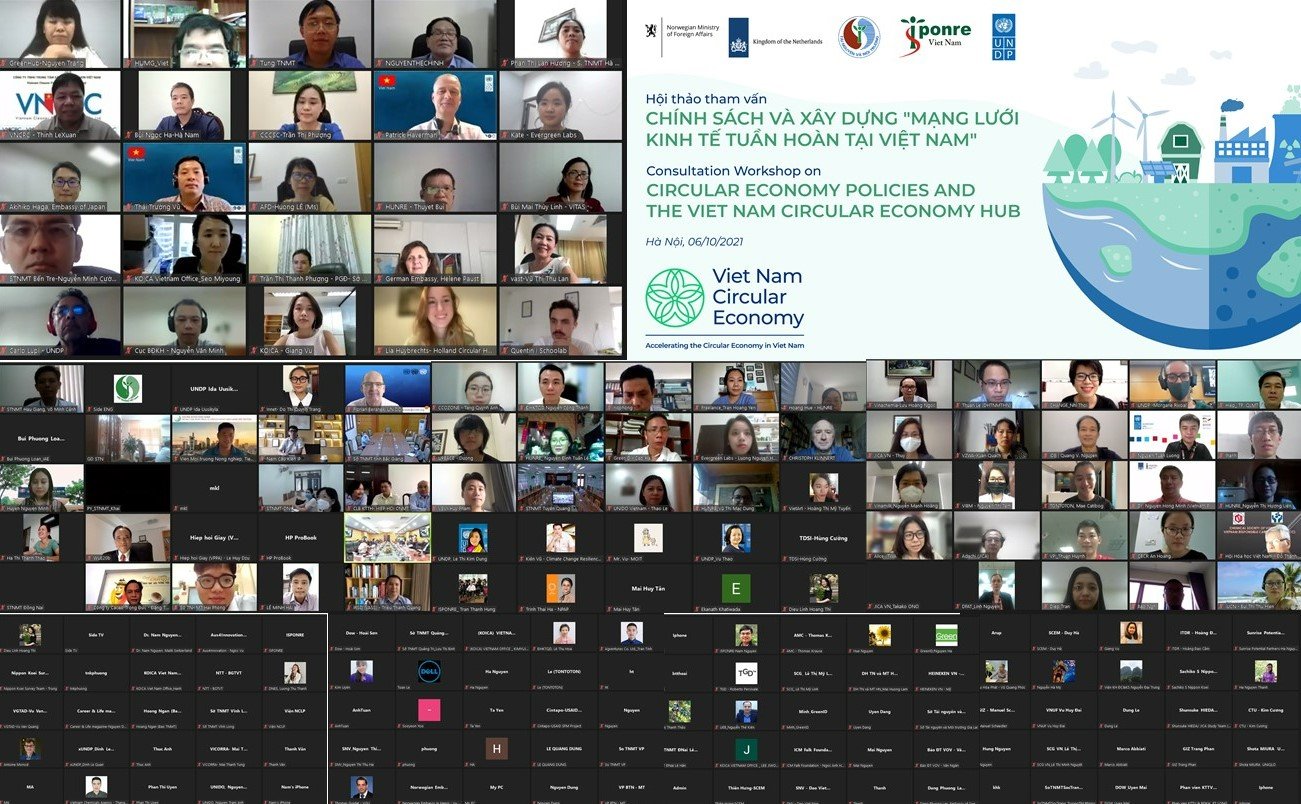Scaling Up a Socialised Model of Domestic Waste and Plastic Management
Project Summary:
Waste management has become a major concern in Viet Nam, as waste generation is increasing at an unprecedented pace and is projected to triple over the next 15 years. Currently, the country does not have the capacity to effectively handle this waste: 70% is disposed in landfills where the implementation of environmental standards is limited; while the rest is burned or discarded in nature, with much of it eventually ending up into the sea. The complex structure of solid waste management at the policy and governance level, together with the lack of reliable data and poor regional coordination worsen the situation. Citizens and businesses are not generally aware of the negative impacts improper waste management causes on human health, in addition to soil, air and water pollution; which calls for increased investment in education. Similarly, Viet Nam has become a major producer and consumer of plastic, with immediate negative consequences in terms of marine pollution, population wellbeing, and on the tourism and fishery industries. Finally, the circular economy approach is relatively unknown, while the linear economy (take, make, waste) is widely employed by business in Viet Nam.
Objectives:
To develop integrated, green and fair models to improve domestic waste and plastic management, in five Vietnamese cities.
Expected results:
- Local waste/plastic management project implemented by local NGOs/CSOs supported under the UNDP/GEF SGP in 5 cities
- Local capacities in systematically tackling waste and managing strengthened plastic in five localities
- Waste picker groups' business expanded and favourable conditions established to ensure sustainability
- Improvement of citizens' awareness on waste and plastic
- Increase of corporate regulations on sustainable production and consumption of materials
- Local regulations on waste or plastic adopted/strengthened
- Acceleration of innovation on circular economy for waste and plastic management
Project locations:
Ha Long, Binh Duong, Binh Thuan, Quy Nhon, and Da Nang
More information, please kindly find the project summary
DOMESTIC WASTE AND PLASTIC
Awareness Raising Materials:
NATIONAL ACTION PLAN FOR MANAGEMENT OF MARINE PLASTIC LITTER BY 2030
Seas and oceans are a significant source of life, and represent extremely important human spaces and a basic foundation for sustainable development. However, they are currently facing many serious problems, most notably pollution, and plastic pollution in particular. There have been many campaigns and initiatives at different levels to reduce ocean plastic waste, including mechanisms and policies, communication, and plastic collection and treatment, with the extensive participation of international organizations, governmental and nongovernmental organizations, and the private sector.
Vietnam has made strong political commitments and has carried out practical activities to manage and reduce plastic waste, including ocean plastic waste. Resolution No. 36-NQ /TW of October 22, 2018 of the Eighth Conference of the Party Central Committee XII on the strategy for sustainable development of Vietnam’s marine economy to 2030, with a vision to 2045, set the goal of “Preventing, controlling, and significantly reducing pollution of the marine environment; becoming a regional leader in minimizing ocean plastic waste.” Click here to download the National Action Plan
SAVE OUR SEAS PHOTO BOOKLET
INCLUSION OF INFORMAL WASTE WORKERS (IWWs) IN THE TRANSITION TO SUSTAINABLE WASTE MANAGEMENT

Following the revision of the Law on Environmental Protection (LEP) in 2020, new provisions anchoring waste management to the process of the circular economy are being implemented such as plastic waste reduction, waste sorting obligations, and the Extended Producer Responsibility (EPR) policy for packaging which will come into effect in 2024. The EPR will fundamentally affect the waste collection, sorting and recycling system in Viet Nam, which is partially undertaken by the informal sector. Click here to download the Issue brief
Stories:
Photo: UNDP Viet Nam/ Phan Huong Giang
WASTE NOT, WANT NOT
With over 20 million of visitors per year, the exceptionally well-preserved Southeast Asian trading port city of Hoi An, a UNESCO World Heritage Site, is left with the gargantuan task of disposing of 27,000 tons of solid waste per year.
In 2016 alone, over 21 million tourists visited the city of 120,000, or 175 tourists per resident annually. The booming tourism industry produces approximately 75 tonnes of solid waste per day. Problems relating to insufficient collection and improper disposal of this waste had been festering for years.
As a result, the city’s land and streams were increasingly littered, threatening the environment and the health of communities. If not properly contained, eventually the city’s waste finds its way to the oceans - creating global environmental ramifications.
Click here to read the full story.
The Dragon’s Jewels
One of the most popular attractions in Vietnam, Ha Long Bay, is a UNESCO World Heritage Site with over 1,600 islands and islets spread over 43,400 hectares, forming a spectacular seascape that attracted 14 million visitors in 2019. According to Vietnamese legend, dragons descended from heaven to defend the Viet people from invaders, spraying fire, emeralds, and jade, which later became the dramatic limestone pillars for which Ha Long Bay is famous. Click here to read the story..
News
Waste management projects line up to address Việt Nam’s white pollution
QUẢNG NINH — A community-based waste management project aiming to scale up classification and foster green investment was launched on Monday in the northern coastal province of Quảng Ninh.
The project, called “Scaling Up a Socialised Model of Domestic Waste and Plastic Management in 5 Cities” (DWP5C), will be implemented in Quảng Ninh, Đà Nẵng, Bình Định, Bình Thuận and Bình Dương in a joint effort by UNDP Việt Nam, the Norwegian Ministry of Foreign Affairs and Việt Nam Administration of Seas and Islands. Read more
Tracing waste a new approach for communities
QUẢNG NINH — Once a bag of garbage is thrown away, what actually happens to it is a mystery to many. Whether it ends up in a landfill or drifts out to sea, to manage waste is to know how it is generated, according to researcher Chu Mạnh Trinh. Tracing the journey of waste, the researcher, who has studied and worked on waste management for nearly 20 years, in early June led a group of some 30 farmers, scrap collectors and public servants from Đà Nẵng, Bình Định, Bình Thuận and Bình Dương to Area 8 fishery village in Hạ Long City’s Hà Phong District, Quảng Ninh Province. The village is inhabited by people from five smaller villages scattered on Hạ Long Bay who were persuaded to move to Hà Phong in 2014 by local authorities to ensure their children enjoy a good education and to conserve the bay's ecosystem. Up to 380 fishing boats dock at the village’s pier twice a month, bringing ashore garbage produced after 14-day trips. Read more
Integrating Resources for the Reduction of Ocean Waste in Binh Thuan province
Bình Thuận Province, November 3, 2020 – The Women's Union of Binh Thuan Province and the United Nations Development Programme (UNDP) held a ceremony to announce the project "Integrating Resources for the Reduction of Ocean Waste." This project aims to enhance awareness and change behaviors for sorting waste at the source in communities, social organizations, and marine businesses in Tuy Phong district, Phu Quy district, and Phan Thiet city. The consumption of single-use plastic products and non-biodegradable plastic bags will be decreased (towards an end goal of no plastic bags or single-use plastic products) through the implementation of policies and activities reducing waste flows from both land and sea operations into the environment. Read more
Integrating Social Resources for Waste Reduction in Binh Duong Province
Binh Duong province, 24 March 2021 – Binh Duong Provincial Women’s Union and the United Nations Development Programme (UNDP) jointly launched a project named “Integrating Social Resources for waste reduction in Di An City, Binh Duong Province”. The project aims to promote the socialization of domestic waste management in Di An city; collect and sort at sources all domestic wastes from households; enhance awareness, behaviours and good habits of domestic waste segregation at source; and reduce single-use plastic items and persistent nylon bags in local communities. The project is a part of a bigger one named “Scaling up a Socialised Model of Domestic Waste and Plastic Management in 05 Cities”, funded by the Norwegian government and UNDP Viet Nam, and managed by the Global Environment Facility (GEF) Small Grants Programme. This project is implemented from now to December 2022, in three wards: Di An, Tan Binh and Dong Hoa, in Di An City. The project has a total of 2.9 billion Dong in which 1.5 billion Dong is from the provincial budget. Read more
Plastic waste photo contest launched online
9 February 2021 — Vietnamese and foreign photographers were able to enter their photos on environmental protection in a contest launched by UNDP and Tạp chí Nghề Nghiệp và Cuộc Sống (Career & Life magazine).
The photo contest, entitled Câu Chuyện Rác Nhựa (Story of Plastic Waste), aimed to increase community awareness about environmental protection. For more information about the competition, please visit our website: photocompetition.undp.org.vn and see the winning photos
Consultation on Circular Economy Policies and the Viet Nam Circular Economy Hub – ways towards a low-carbon and circular Viet Nam
The Ministry of Natural Resources and Environment (MONRE) and United Nations Development Programme (UNDP) hold a consultation workshop on Circular Economy Policies and the Viet Nam Circular Economy Hub. The workshop provides an opportunity to finalize the Draft Decree on implementing Article 142 on Circular Economy under the Revised Law on Environmental Protection 2020. It also brings together key stakeholders to discuss the development and implementation of the "Viet Nam Circular Economy Hub" (or CE Hub). Read more
Lessons Learned from Pilot Projects Working with Women Informal Waste Workers in Viet Nam
The EU-BMZ 'Rethinking Plastics' project and UNDP Viet Nam co-hosted a workshop on “Lessons Learned from Pilot Projects Working with Women Informal Waste Workers in Viet Nam.” The workshop highlighted diverse case studies, researches and innovations from contributing to recognising the roles and contributions of informal waste workers in the waste management value chains. Read more

From the Mountains to the Sea – Beat Plastic Pollution
The United Nations Development Programme (UNDP) and the Viet Nam Administration of Sea and Islands (VASI) under the Ministry of Natural Resources and Environment have launched the campaign “From the Mountains to the Sea - Beat Plastic Pollution” and honored the winning works from the photo contest “Plastic Pollution Story”. The new campaign calls for action to reduce, reuse, and recycle single-use plastic waste. Read more

Conference on national action plan for a circular economy net-zero emissions kicks off
The Ministry of Natural Resources and Environment organised the kick-off conference on the national action plan for a circular economy with the participation of government leaders, development partners, ambassadors, representatives of enterprises, non-governmental organisations, universities, research institutes, and leading experts. At the conference, national and international partners exchanged successful circular economy (CE) models from the region and globally, with the intention of identifying suitable models that can be applied in Vietnam. The forum provided an important opportunity for all parties to exchange ideas and prioritise mechanisms and policies to promote CE models. Read more

 Locations
Locations











